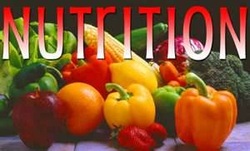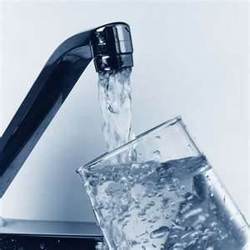NUTRITION AND HYDRATION

What to eat? That is always a big question for runners and those in training. A high carbohydrate diet is recommended and proven to aid in training and racing. In addition, nutrition experts now believe that grazing on five smaller meals throughout the day is better than eating three big meals. Why? Because a steady intake keeps your energy level consistently higher. Also, you never become overly hungry, so you won’t get the urge to overeat. You also tend to choose higher quality foods if you never let yourself become too hungry.
The following is a list of smart snacks and those foods highest in carbohydrates:
-Bananas -Fig Bar Cookies -Pasta -Potatoes/Sweet Potatoes -Dried Fruit -Tuna Fish
-Fruit yogurt -Bread/Bagels -Cereal with Skim Milk -Chocolate Milk -Energy Bars
-Granola bars -Carrots -Pretzels -Cottage Cheese -Smoothies - String Cheese
Finally, don’t forget to eat adequate quantities of protein. Protein aids in rebuilding broken down muscle fibers.
Pre-Race Meals: The meals prior to competition should be rich in carbohydrates. If your competition is in the morning, you should eat a small snack or light breakfast 1-4 hours before the event. However, every athlete is different so a pre-competition meal should be experimented with before race day to find out what your needs are.
Recovery Meals: Meals rich in carbohydrates should be consumed no longer than 2 hours after a hard run or race. As soon as possible after a run is best. Fruits and/or fruit juices are quick, convenient post event snacks. A post-race meal should include a dinner high in protein to aid in muscle rebuilding. Chocalate Milk is about the most perfect recovery drink and should be consumed within about 20 minutes of finishing a workout.
The following is a list of smart snacks and those foods highest in carbohydrates:
-Bananas -Fig Bar Cookies -Pasta -Potatoes/Sweet Potatoes -Dried Fruit -Tuna Fish
-Fruit yogurt -Bread/Bagels -Cereal with Skim Milk -Chocolate Milk -Energy Bars
-Granola bars -Carrots -Pretzels -Cottage Cheese -Smoothies - String Cheese
Finally, don’t forget to eat adequate quantities of protein. Protein aids in rebuilding broken down muscle fibers.
Pre-Race Meals: The meals prior to competition should be rich in carbohydrates. If your competition is in the morning, you should eat a small snack or light breakfast 1-4 hours before the event. However, every athlete is different so a pre-competition meal should be experimented with before race day to find out what your needs are.
Recovery Meals: Meals rich in carbohydrates should be consumed no longer than 2 hours after a hard run or race. As soon as possible after a run is best. Fruits and/or fruit juices are quick, convenient post event snacks. A post-race meal should include a dinner high in protein to aid in muscle rebuilding. Chocalate Milk is about the most perfect recovery drink and should be consumed within about 20 minutes of finishing a workout.
HYDRATION

You are a runner. Which means you need to know this: Drinking an adequate amount of fluids is the single most important thing you can do before, during, and after a run. The following are some rules of fluid replacement and how they will energize your running:
Copyright © 2003, 2004 Lexico Publishing Group, LLC
- Drink Early and Often- Every Day. Drink water or other low-calorie fluid in small, steady quantities throughout each day, to the point when your urine flows clear. Stay away from diuretics such as drinks containing caffeine or alcohol.
- Fortify Yourself with Fluids Before you Run, and Aggressively Consume Fluids During your Run. An hour or two before you run or race, top off your fluid tank by drinking 16 ounces of water or sports drink. Then drink about 5 ounces of fluid every 20 minutes during the run.
- Hyponutremia (water intoxication) Do Not Drink Too Much Water
Definition: an electrolyte imbalance caused by over-retention of water along with sodium depletion; also called hyponatremia, severe over hydration
Example: Water intoxication is marked by lethargy, nausea, vomiting, and mild mental aberrations, and in severe cases by convulsions and coma.
Copyright © 2003, 2004 Lexico Publishing Group, LLC
- When you run long, use a sports drink. When running longer than an hour, studies show that runners perform better when drinking a sports drink than when drinking plain water. (However, water is better than not drinking at all.) Sports drinks contain carbohydrates, which provide fuel, and its electrolytes sodium and potassium stave off cramps and nausea. Go with a flavor you like, as this will encourage you to drink more.
- Do Not Wait Until You Are Thirsty To Start Drinking. By then it could be too late. We often don’t feel thirsty before or in the early stages of a long run, but that is exactly when we need to start drinking.
- After your Run, Drink Between 16 and 24 ounces of Water/Fluid for Every Pound of Body Weight you Lost During Exercise. Again, if you can use a sports drink, they will help you retain the fluid you drink.
- Be Careful out There. The better your overall condition, the better you’ll be able to cope with low or moderate degrees of dehydration. But, if you feel yourself slipping into fluid debt-symptoms include chills, dizziness, disorientation, and cessation of sweating- don’t panic. Stop running, find shade or air-conditioning, and start drinking as soon as possible. If you don’t improve quickly, ask for help or call 911. If you do start to feel better, resist running and walk or ask for a ride home.

